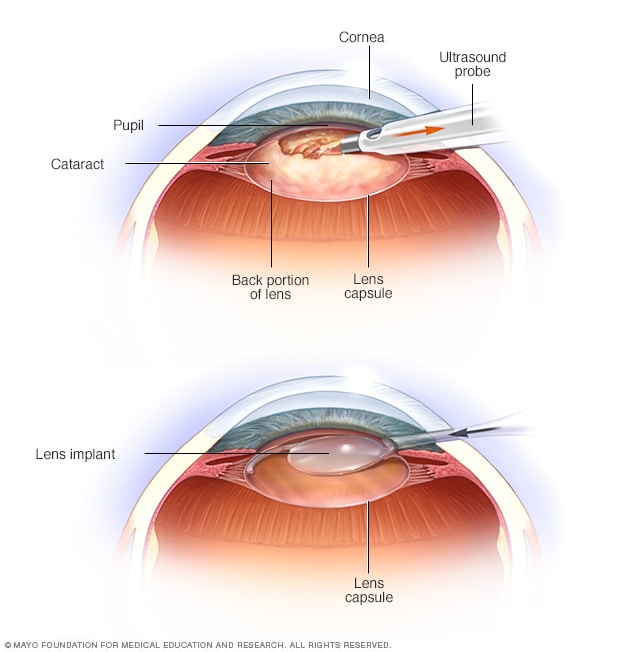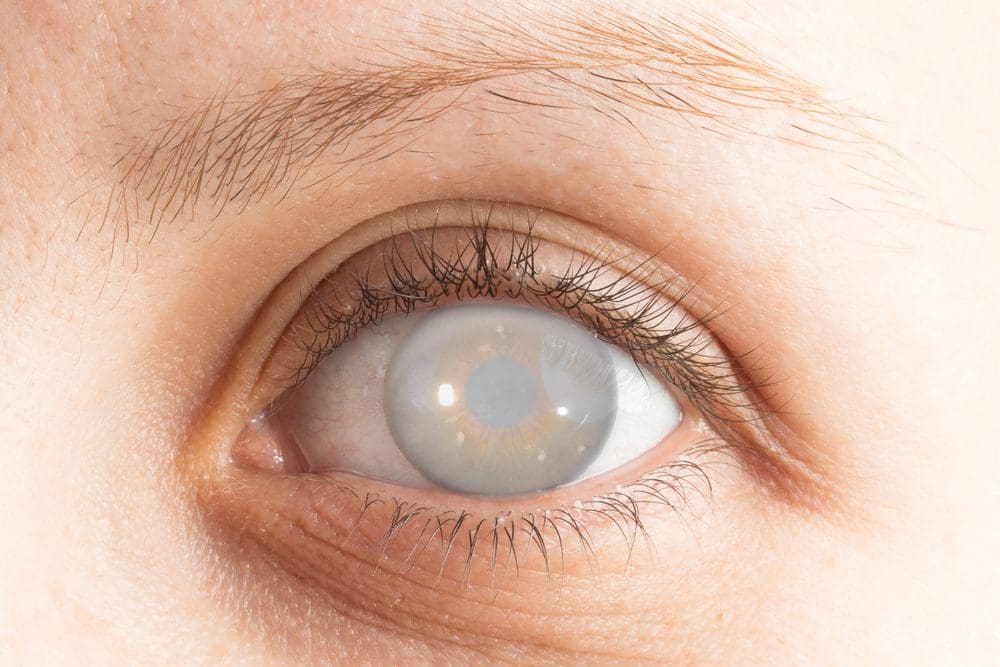Antwort Can anything go wrong during cataract surgery? Weitere Antworten – What can I do to see better with cataracts

A new prescription for eyeglasses or contact lenses can help you see better with cataracts early on. Surgery. Your doctor might suggest surgery if your cataracts start getting in the way of everyday activities like reading, driving, or watching TV.There are some reasonably small lifestyle changes you can make to help you manage with cataracts, such as: Stronger prescription eyeglasses. Using brighter lighting for reading at home and work. Using visual aids such as magnifying lenses.Tips for coping with early or small cataracts
When that's the case, the following tips can help. See your eye doctor for a new eyeglass or contact lens prescription. Put brighter lightbulbs in the lamps around your home, especially the ones you use to read or do other close work.

What is life like with cataracts : When your vision is cloudy due to cataracts, it can complicate your life. Cataracts make it hard to drive, especially at night. Also, they make it hard to see facial expressions or complete detail-oriented tasks like reading or sewing. Cataracts are a very common condition for people to develop as they age.
Why is my vision getting worse after cataract surgery
It is very common to have blurry or unclear vision in the days and sometimes even weeks after cataract removal. Most of the time, this is caused by normal swelling in the eye which occurs as a part of surgery. Patients with larger, denser and/or firmer cataracts are more likely to experience more inflammation.
How long does it take for vision to stabilize after cataract surgery : The amount of time it will take for your vision to stabilize is one of the most popular questions about cataracts. The standard answer to this question is 3 – 6 weeks, but any cataract surgeon worth his or her salt will tell you that post-surgery vision stabilization matters on the individual.
If your cataracts are in the early stage and are slow growing, you may be able to safely delay surgery for a couple of months without experiencing serious complications.

Depending on the lens and the patient, neuroadaptation may happen sooner, later or not at all. The majority of patients will adapt to multifocal IOLs within six to 12 months, according to Dr. Maloney. But about 10 percent of patients never will adapt.
Why is my reading vision worse after cataract surgery
After surgery, your brain may need time to adjust to the new lens and how light is entering your eye. Swelling and inflammation: It is normal for the eye to be slightly swollen and inflamed after cataract surgery, which can affect your ability to focus and read. This usually subsides within a few days or weeks.The success rate of a Cataract surgery is 98%. However, every surgery entails risks and cataract surgery is no exception. Endophthalmitis is the only complication that can cause permanent vision loss. Its incidence is less than 0.04% to 0.2% in individuals at risk.As a general rule, worsening sight, increasing pain, redness, swelling and discharge are all symptoms or signs that should trigger a referral.

The most common complication was posterior capsule rupture, reported in 0.41% of patients, most of whom ended up with excellent vision, followed by zonular dialysis (0.37%), iris trauma (0.16%), retained lens fragments (0.11%), anterior capsule tear (0.09%), hyphema (0.05%) and other (0.05%).
Why am I unhappy with my vision after cataract surgery : Residual refractive error is a common reason for patient dissatisfaction after cataract surgery. Fortunately, this can be corrected with a pair of glasses or contact lenses or with a corneal refractive procedure.
Does cataract surgery sometimes fail : In some cases, cataract surgery may not be effective, and you may continue to have vision problems or worse vision after surgery. This is rare, but it's more common in people who had other eye conditions beyond cataracts even before surgery.
Can vision worsen years after cataract surgery
People may develop blurred vision or other complications following cataract surgery, even 2 or more years after receiving cataract surgery. People with cataracts experience blurry or hazy vision as they get older. Doctors can implant an artificial lens in a person's eye after removing their cataracts.

Many people complain that they feel like there is sand in the eye or that the eye feels scratchy after surgery. This is a normal sensation caused by the small incision in your eye, and it should heal within a week or so. If you have dry eye, the discomfort may last longer — up to three months.The success rate of a Cataract surgery is 98%. However, every surgery entails risks and cataract surgery is no exception. Endophthalmitis is the only complication that can cause permanent vision loss. Its incidence is less than 0.04% to 0.2% in individuals at risk.
What is the biggest risk with cataract surgery : Cystoid Macular Edema
CME is the most frequent complication after an uncomplicated cataract surgery. Its peak incidence is about 6 to 8 weeks post-operatively.



